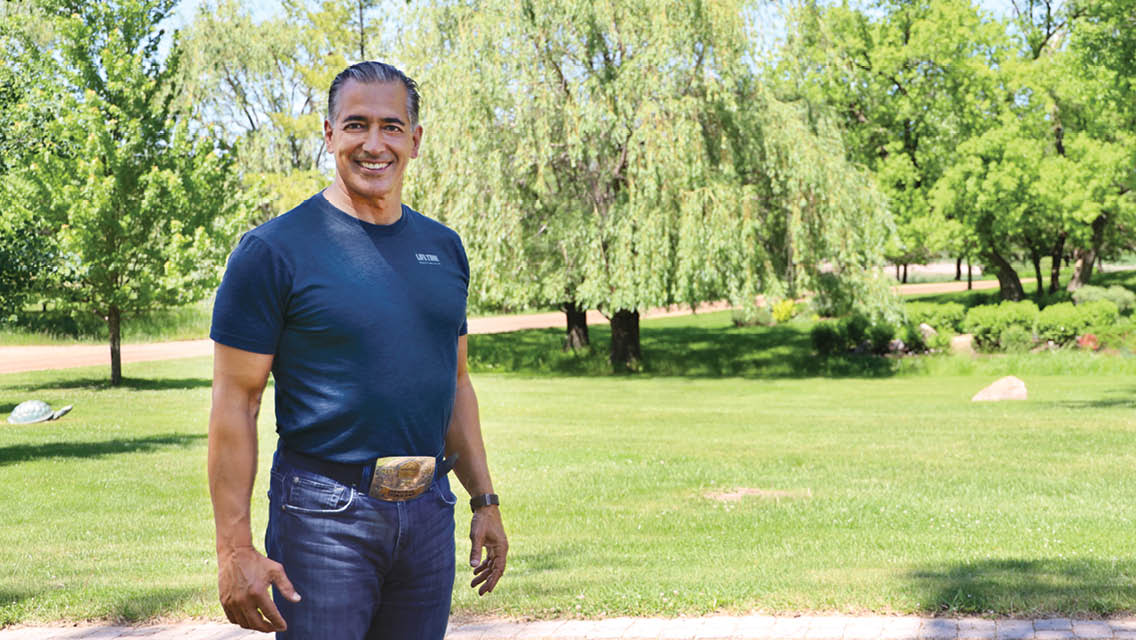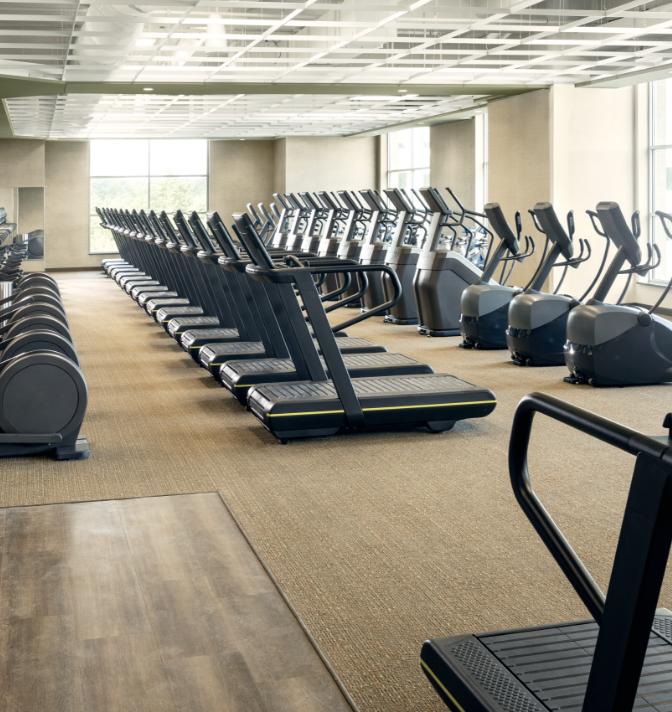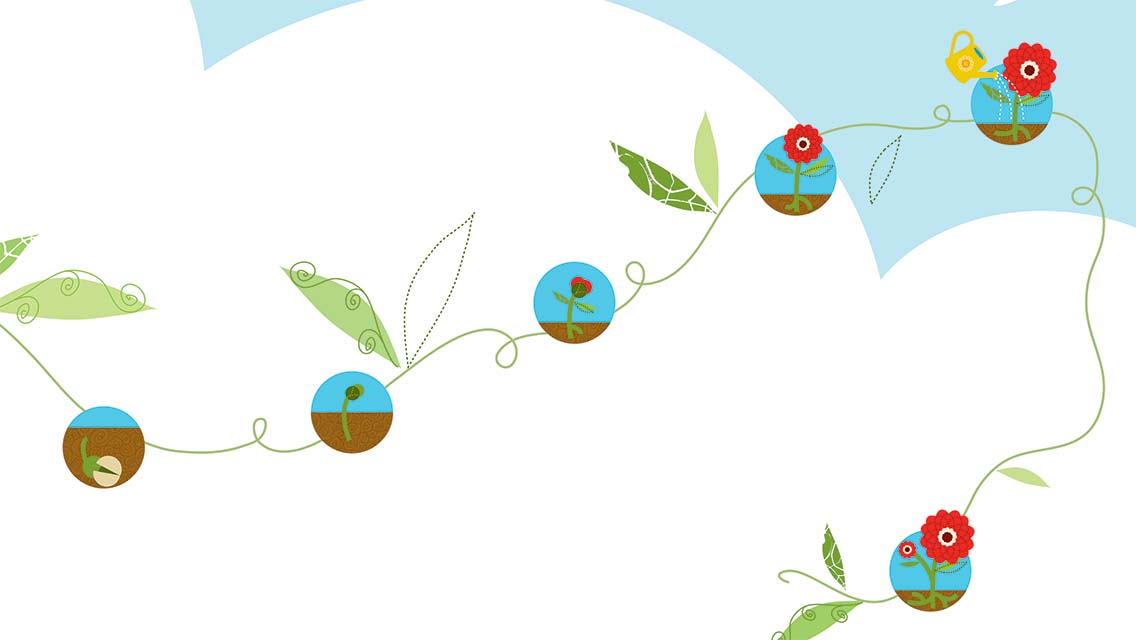First impressions are indelible. Meeting Bahram Akradi on a spring Monday morning, I’m welcomed first by his voice: deep, warm, full of energy, and humor. Relaxed and ready to start our meeting, he greets each member of his team like a family member he’s gone too long without seeing, with fondness and genuine interest in how they’ve been.
He describes the 50-plus-mile bike trek he took the day before with a group of Life Time employees (with an admirable lack of visible soreness). He shares a couple of funny stories before settling in to answer my questions about how Healthy Way of Life became his focus.
A trailblazer in the health and wellness industry, Akradi is the source of many innovative ideas that have redefined that space. Yet his passions are vast and varied: He’s as eager to talk about the ecological circle of life on Earth, and the daily choices each of us can be making to protect it, as he is to draw parallels to the multifaceted factors that make up individual health. He’s quick to laugh but is also focused and serious on matters of authenticity, compassion, family, and connection.
Akradi came to the United States from his homeland of Iran when he was a teenager. Pursuing a dream of becoming a pilot, he enrolled in electrical engineering at the University of Colorado in Colorado Springs, with a long-term goal of earning a master’s degree in aerospace engineering and taking to the skies.
To make ends meet, he worked at a restaurant where he washed dishes, then worked his way up from backup cook to a role as “Chef Akradi” at night.
A regular at a Nautilus Fitness Center, Akradi started working the graveyard shift, doing anything and everything that needed to be done, including advising clients and selling memberships. It wasn’t long before he was the club’s most prolific salesperson.
In 1983, the company sent the then-21-year-old Akradi and a 23-year-old colleague to Minnesota, entrusting them to open a health club and get the business off the ground. They made it a success, and soon after, Akradi accepted a partnership stake in the company.
By the time it was sold in 1986, Akradi had already started envisioning a different kind of health-club experience and he got to work, putting his ideas to paper. Six years later, he put all his assets into founding Life Time Fitness.
Nearly 30 years later, Life Time now employs some 25,000 team members and operates 150-plus clubs in more than 40 markets in the United States and Canada. The organization is a leader in the industry, offering training, education, wellness programs, and athletic events, in addition to its latest ventures in Life Time Work and Life Time Living.
“We’re focused on all aspects of health — not just fitness, but healthy living, healthy aging, and all the other spokes that affect our quality of life,” says Akradi. “It’s all interconnected and we’re committed to helping people understand the many factors that influence their well-being.”
By the time we’re done talking, one thing is evident: Akradi is about energy — the positive, generative, and dynamic force that weaves together life on both the largest and smallest of scales. And he has an abundance of it.
With Life Time approaching 30 years and Experience Life celebrating 20, Akradi looks back — and forward.
Q&A With Bahram Akradi
Quinton Skinner | Over the past few decades, how have you seen attitudes and perspectives around health and fitness evolve?
Bahram Akradi | Health has been a megatrend for the last 40 to 50 years, and more people are aware that their health is in their own hands — but we have a long way to go. There is still too much focus on sick care, and not enough on taking care of ourselves and generally managing the full spectrum of a healthy way of life.
The good news is our society is changing, gradually and steadily. We have a new generation of healthcare providers who are focused on preventive health first. I think in the years to come, there will be even more education and evolution in realizing we can address many health issues through modifiable lifestyle factors before they become real illnesses.
QS | This past year seems to truly illustrate what you’re saying.
BA | It’s clear that COVID-19 might have been the biggest wake-up call of our time to focus on our overall health, from the health of our cells and our bodies to our states of mind and the stress we’re dealing with. It was a wake-up call for our nation, and the entire world, that we need to prioritize our health and well-being — from the inside out.
QS | How do you see the role of Life Time in this evolution?
BA | While many organizations are focused on medicine and treatments, I believe companies like Life Time can balance that by doing the best we can to educate people on all the controllable factors that influence their health and well-being — including proper nutrition and nourishing foods, managing inflammation and stress, exercising regularly, getting enough sleep, and nurturing relationships.
Feeling like we have some control over the destiny and direction of our own health is an empowering thing. We have the obligation as an entity to keep educating people on the factors that can make a real, measurable difference in their lives.
QS | How does this intersect with Life Time’s approach?
BA | It’s about care. We know about [psychologist Abraham] Maslow’s hierarchy of needs — beginning with such basic necessities as access to shelter and food. After that, it’s about knowing we are cared for and respected, and that we belong and are included.
As human beings, we covet feelings like belonging; we love it when we are seen and respected. Showing care for all of our members and team members creates a sense of community — it’s not something you build overnight; it takes years and years of cultural reinforcement.
QS | How does Experience Life fit into your mission?
BA | We started the magazine to become a trusted source for people to get authentic information that is not paid for or influenced by special interests. To guarantee it stays pure, it doesn’t rely on advertiser dollars like so many other publications.
I’m really proud of how Experience Life has become such a respected source of curated, accurate information you can trust.
QS | You’re still teaching classes at Life Time. What does that mean to you?
BA | I’ve been teaching classes since the early 1980s — you know, the era of headbands and legwarmers! These days, I teach cycling classes, and classes in balance and strength and cardio. I love being part of it. I never want to lose touch with my team or our members. I want to know how they feel and what they experience and to keep myself as connected as possible.
QS | What are you most proud of accomplishing?
BA | Our culture at Life Time — it is truly a culture of love and respect. We’re not perfect, but we’re always in pursuit of that perfection. Everybody in this company seeks every day to do better than the day before, with real respect and real love. It’s a matter of doing the right thing all the time, whether someone’s watching or not.
QS | You’re in the process of writing a book that’s framed as a letter to your son. What have you set out to accomplish with that project?
BA | My goal with this book is to take the best of what I have learned through my life — through a lot of trial and error, and a lot of mistakes and correcting my mistakes — and share them with anyone who’s interested. My hope is to leave behind something that my son, daughters, and others can read and maybe one day put to work to make their lives or our planet better. I’ve been working on it (and reworking it) for 10 years — the problem as a perfectionist is that it’s hard to be satisfied — but I’m excited to get it out there soon.
QS | When it’s all said and done, what would you like people to say or think about you?
BA | I always say, “We are born naked, and we die naked.” In between, we might think we own the things we have, but we are actually renting them. None of it is really ours, yet we are often too focused on what we are, what we accomplish, what we have. Eventually, though, everything returns to the ground.
As I get older, I realize that we are so incredibly small, and our impact may be smaller than could ever be registered. Instinctively, I know that I am wired to protect. What I care about and love so much is this planet, Mother Nature, and its beauty. I don’t know that I as a human being will alter the ultimate course of what happens on this planet, but I do know we need to love it, respect it, and care for it more. So, I would love to know that when I’m gone one day, I will have had a small impact by encouraging more people to love and care for our world.





